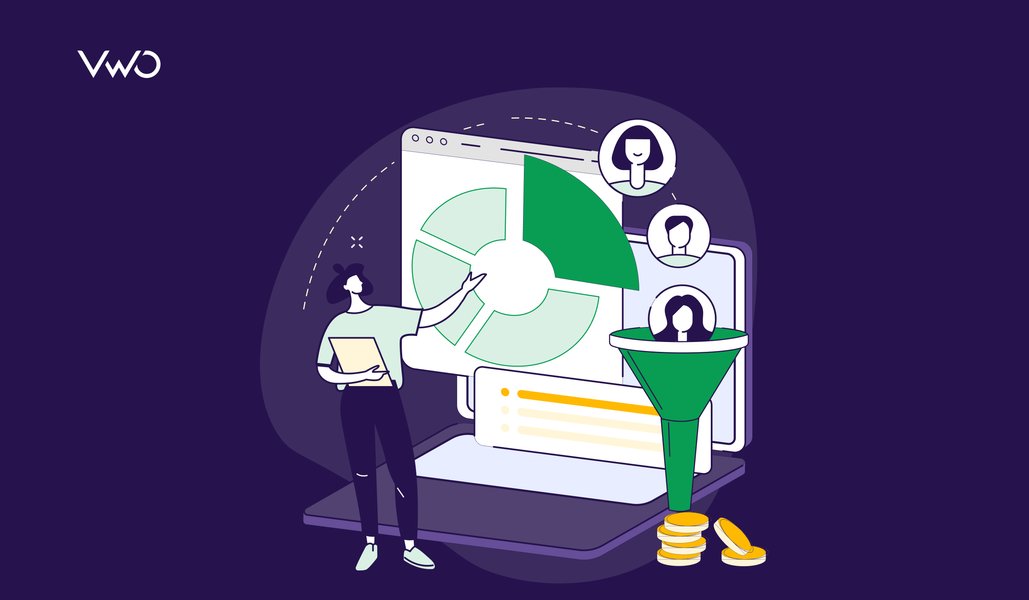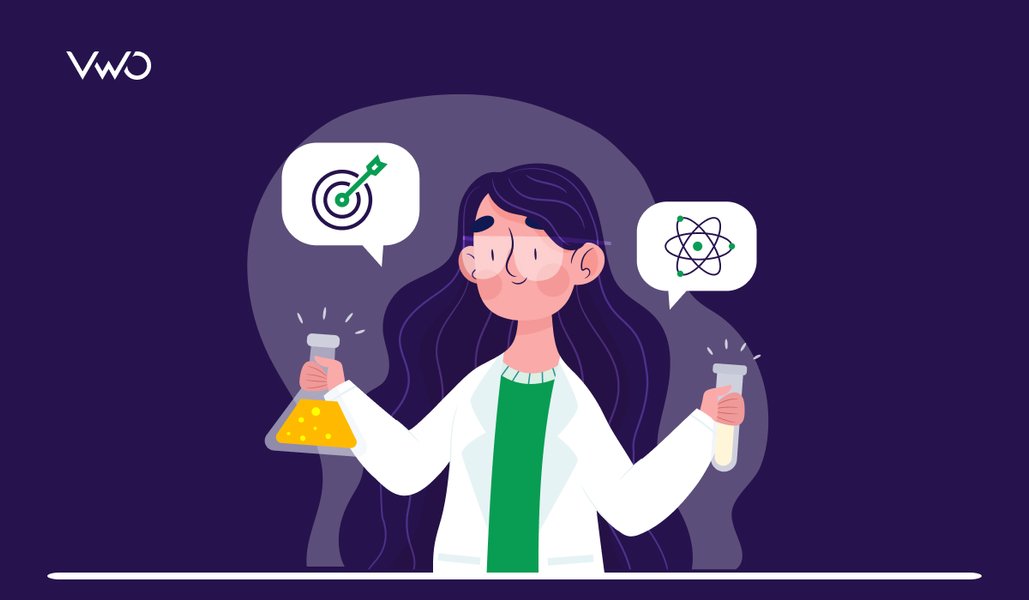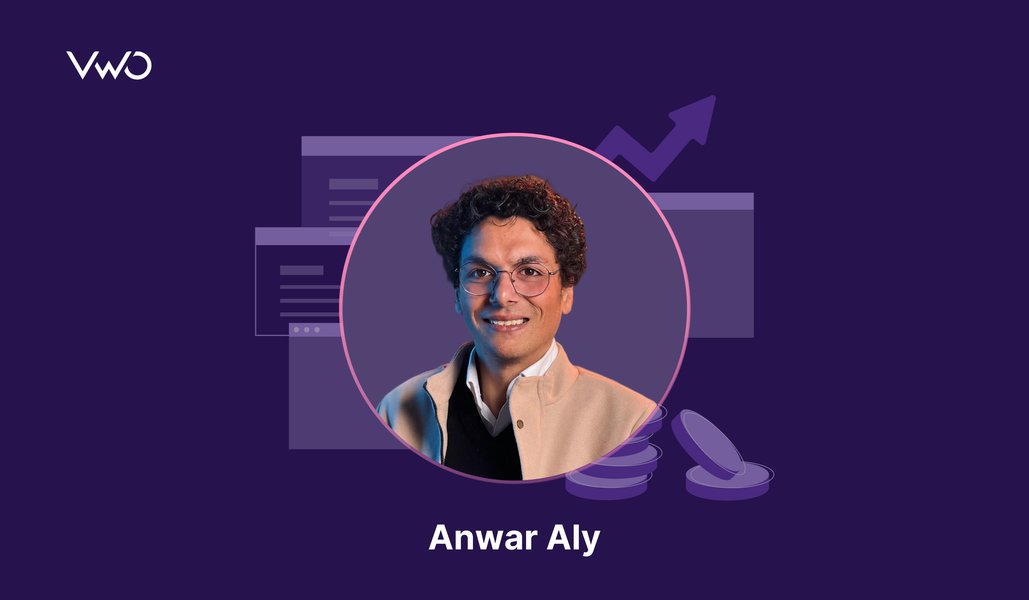Our ‘Women in CRO’ blog series highlights incredible contributions made by women to conversion rate optimization. Recently, we had the honor of interviewing Abi Hough, Director at UU3 Limited, on our Women in CRO podcast series.
With a rich background in implementing and strategizing conversion rate optimization processes, Abi brings a wealth of knowledge in areas such as user research, website heuristic analysis, A/B testing, and understanding consumer behavior and psychology.
Abi’s proficiency extends to UI/UX methodology, encompassing prototyping, design, and testing while ensuring cross-device and browser functionality.
Her keen eye for quality assurance and resolute dedication to accessibility make her insights invaluable for optimizing digital experiences.
Through this interview, you’ll gain a comprehensive understanding of conversion rate optimization, practical advice for enhancing user experience, and learn about the significance of accessibility in digital design.
Don’t miss out on this enriching conversation. Listen to the full episode on Spotify here.
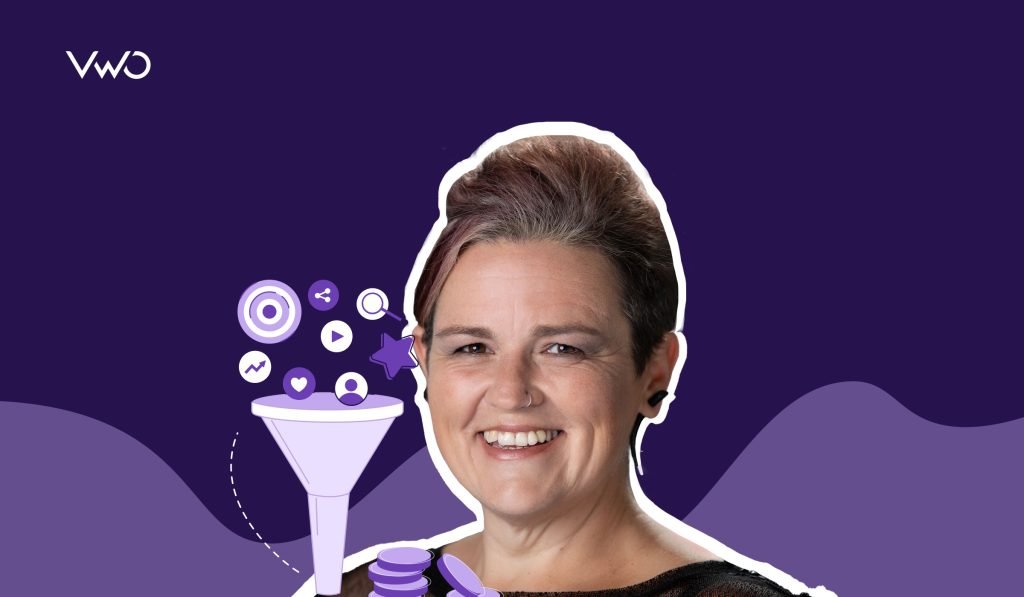
Embracing usability and accessibility
Abi Hough’s journey in CRO began with a strong emphasis on usability and accessibility. A pivotal moment came when she watched her first user session recording and realized that users were struggling with her design. This experience led her to prioritize understanding user behavior and needs over simply implementing conventional CRO tactics without research.
I realized it was me that was the problem. So, my approach is very much less—the cheesy aspects of CRO that you see, like putting timers up to hurry people through checkouts and more around what the customer or what the user actually needs from the website.

Eventually, she delved deeper into the world of accessibility, ensuring that websites are usable by everyone, including those with disabilities.
Abi’s dedication to user research and a genuine understanding of user behavior sets her apart in the CRO landscape. Her story is a reminder that at the heart of optimization, it’s all about real human experiences, not just numbers and metrics.
Staying true to user-centric principles and prioritizing accessibility leads to more successful and meaningful conversion rate optimization outcomes, ultimately fostering higher user satisfaction, increased engagement, and improved overall conversion rates.
This approach not only enhances the user experience but also builds trust and loyalty, driving sustained growth and long-term success for your business.
How Lyyti.com increased free trial sign-ups by 93.71% with user-centric optimization
Lyyti.com, a Finland-based SaaS event management solutions provider, used VWO to optimize its website with a clear focus on user-centric principles. Their main objective was to increase the number of visitors clicking the ‘Free Trial’ CTA button.
Analyzing user behavior with VWO heatmaps and clickmaps, they discovered that users frequently moved between the pricing and features pages. This indicated confusion and a lack of clarity about options and next steps, suggesting users needed more intuitive navigation and clearer information to make informed decisions.
By prominently displaying plan features and adding multiple CTA buttons, the redesigned page aimed to enhance clarity and ease of decision-making for users.
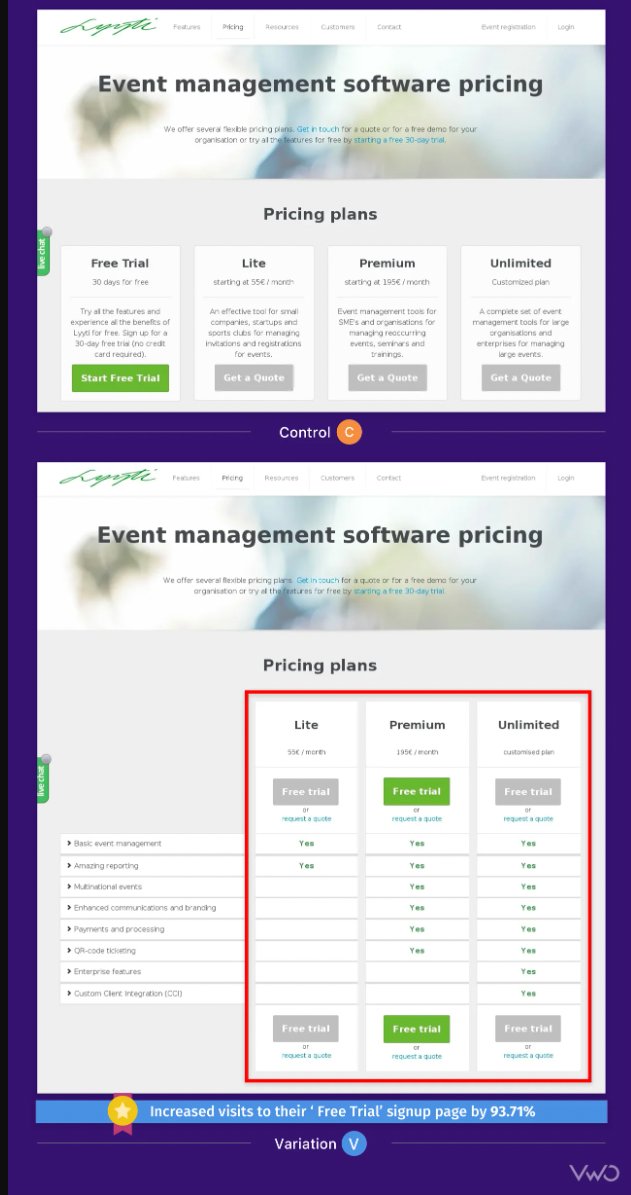
After testing two variations over five months, they observed a 93.71% increase in visits to the lead generation page. The winning variation included a clear table of plan features, multiple prominent CTA buttons, and a singular focus on encouraging free trial sign-ups.
This success story underscores the critical role of a user-centric approach and prioritizing accessibility in achieving more successful and meaningful conversion rate optimization outcomes.
The advantage of coding knowledge in testing
Abi Hough highlights the enduring value of her coding background. Although she found backend coding challenging, her experience with front-end development allowed her to see immediate results, which she enjoyed.
This technical foundation has proven invaluable in her current role. Abi’s ability to understand both front-end and back-end processes equips her with the insight needed to propose and evaluate tests effectively.
This knowledge helps set realistic timelines with developers and provides informed feedback to clients about the feasibility and ROI of their ideas. It is crucial for making informed decisions, prioritizing tasks, and ensuring the successful implementation of optimization strategies.

By bridging the gap between technical and strategic thinking, CRO professionals can drive significant improvements in website performance and ultimately, business success.
Having some knowledge of how backend code works and front-end code works, and databases and all of that stuff, it played really well to me because not only had I lived it, but when I was in the position of having to propose tests and QA tests, it was quite easy to go back to the developers and say, ‘Well, that’s not right, is it?
VWO’s visual editor and code editor bridge the gap between technical and non-technical skills. With the intuitive point-and-click interface, anyone on your team can efficiently edit and enhance webpages without coding.
Essential role of user testing in optimization strategies
Abby shares her insights on the persistent challenges of prioritizing user testing in the optimization process. Despite common perceptions of user testing as a low priority, she emphasizes the importance of grounding every test in robust data points derived from comprehensive user research.
User testing will always be put on the back burner because it’s seen as a waste of time. But every test has to have a reason to be run, backed by data points. A lot of my ideas come from the user research side of it, and surprisingly, they’ve done remarkably well.
To counter this, she relies heavily on user research methods, such as on-site surveys, reviews, heatmaps, and session recordings, to identify problems before confirming them with analytics. This approach has led to significant successes, even when traditional analytics didn’t support her initial findings.

Abi emphasizes the importance of understanding and aligning with client priorities, fostering open communication, and maintaining authenticity to build trust and ensure successful optimization outcomes.
Abby’s pragmatic and user-centric approach to optimization highlights the critical balance between data-driven decisions and authentic client relationships. By focusing on genuine user insights and maintaining a transparent and clear communication style, Abby ensures that her optimization strategies are both effective and meaningful, fostering long-term success for her clients.
VWO Insights consolidates visitor behavior data in one place, streamlining the process of understanding user interactions, identifying bottlenecks, and gathering actionable insights for website optimization.
The power of user session recordings
Abi Hough highlights the often-overlooked potential of session recordings in conversion rate optimization. She emphasizes the importance of spending time watching these recordings, reading reviews, and checking survey responses to uncover hidden issues affecting user experience.
By noticing minor oddities in user behavior, businesses can address underlying problems that may be causing significant drop-offs in the conversion process and convert them into profitable test opportunities.
A lot of tests I’ve run started by noticing something odd in a session recording. That oddity for one user is often an issue for hundreds. From that one small observation, you might uncover a series of problems affecting your funnel and causing users to drop out and not make purchases.
Unlike quantitative research tools that merely drown you in numbers, VWO’s session recordings enable you to gather insights into select visitors’ experiences and journeys on your website. By using filters and analyzing these recordings, you can identify and address issues that may be causing users to drop off and refine your strategies accordingly.
Abi underscores the need to focus on existing customer data and retention strategies, particularly as data privacy concerns grow and access to detailed user information becomes more restricted.
Acquiring a new customer can be up to five times more expensive than retaining an existing one. While many businesses emphasize attracting new customers, it’s crucial to recognize and leverage the untapped potential within our current customer base.

To stay ahead, you must maintain a keen attention to detail and adopt a proactive approach to optimization. By analyzing existing data and using user session recordings, businesses can gain valuable insights that enhance their conversion strategies.
For small and medium-sized businesses, Abi advocates for a pragmatic approach to optimization. Leveraging session recordings in conjunction with a thorough website audit can quickly pinpoint critical pain points.
If 50 users encounter the same problem, it’s clearly an issue, not just an opinion. Focus on the problematic areas identified through the audit and recordings. You might not always need to A/B test; sometimes, just fixing obvious issues can make a big difference.
By leveraging session recordings and conducting thorough audits, businesses can swiftly address glaring issues, leading to significant improvements without the need for extensive A/B testing. This method not only saves time and resources but also ensures a smoother user experience, ultimately enhancing customer satisfaction and conversion rates.
Shifting the focus to customer retention
Abi Hough passionately advocates for a shift in conversion rate optimization from purely data-driven strategies to more human-centered approaches. Abi emphasizes the importance of customer retention and the need to recreate personalized shopping experiences reminiscent of a time when store owners knew their customers by name.
I would love it if we could, in some way, kind of emulate the days when you went into a shop and everybody knew your name. Giving customers a reason to come back beyond convenience would be nice. Creating customers who are doing the advertising for you, so your brand advocates.
Genuine connections and brand advocacy should replace superficial incentives, highlighting the potential for CRO to foster long-lasting customer loyalty. Abi’s insights highlight the importance of ethical data practices and genuine customer engagement as pivotal to the future success of eCommerce enterprises.

Abi’s forward-thinking approach encourages businesses to rethink their strategies, focusing on creating meaningful customer relationships rather than solely relying on automated algorithms. By prioritizing personalized experiences and ethical data practices, eCommerce businesses can foster long-term loyalty and advocacy, ensuring sustainable growth in an increasingly digital landscape.
The human element in AI-driven optimization
Abi Hough recounts her experience with tools like ChatGPT. Initially enthusiastic about the potential for AI to simplify tasks such as analyzing thousands of survey responses, Abi quickly realized the limitations of AI compared to human analysis.
Despite using AI to categorize responses, she found significant discrepancies in the insights generated by AI versus her manual analysis. Abi emphasizes that AI lacks the empathy and nuanced understanding that humans bring to the table, particularly in recognizing the emotional undertones of user feedback.
The differences in what I found compared to what the AI had decided were the main themes were astounding. AI doesn’t have empathy like a human does.

While AI excels in handling large datasets with efficiency, it falls short in replicating the depth of human insight. This experience underscores the importance of blending AI’s capabilities with human intuition to achieve a more comprehensive understanding of user behavior and emotional nuances.
By leveraging the strengths of both AI and human expertise, we can enhance optimization strategies and better address the complexities of user feedback.
Empowering women in the workplace
Abi shares her personal journey that highlights the challenges women face in balancing work and life, particularly when managing responsibilities like motherhood and family commitments. She transitioned to consulting to better align her work with these demands.
Abi also highlights a positive generational shift, noting that younger women are more vocal in demanding equality and better working conditions, which is essential for achieving workplace fairness.
She also underscores the unique value that women’s perspectives bring, especially in understanding and empathizing with customer experiences, which is crucial in fields like marketing and user experience.
She encourages women to seek environments that value and support them, advocating for a more inclusive and respectful workplace that recognizes the diverse contributions of all employees.
As long as women understand that their viewpoint is as important and they have every right to stand up and say what they think and not be intimidated by the situations that they are in. Just be the woman that stands up and says, ‘No, I’ve got a voice, and I’m going to be heard.
Conclusion
Abi’s insights serve as a powerful reminder that real human experiences are at the heart of optimization. Her dedication to user-centric principles, practical advice for enhancing user experience, and commitment to accessibility underscore the significance of understanding and meeting user needs genuinely and effectively.
For a deeper dive into Abi’s experiences, watch the full interview on our podcast.
Always seek to uncover the deeper motivations behind user actions. To gain more insights from thought leaders like Abi Hough, make sure to subscribe to the VWO podcast.





